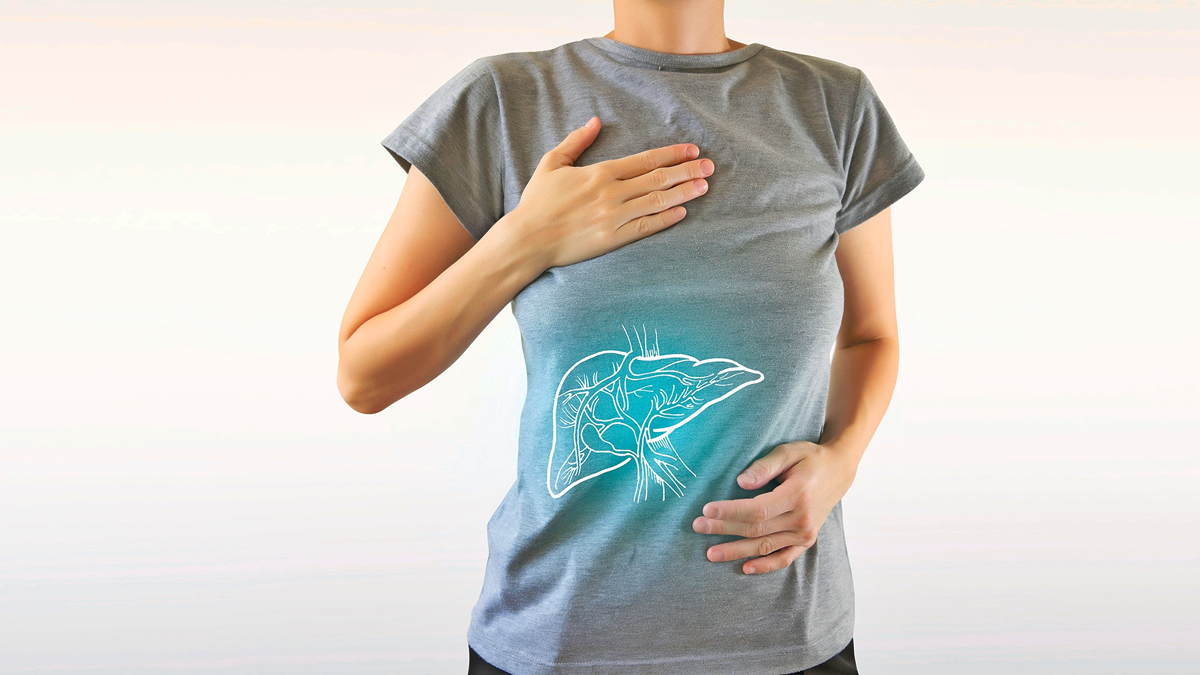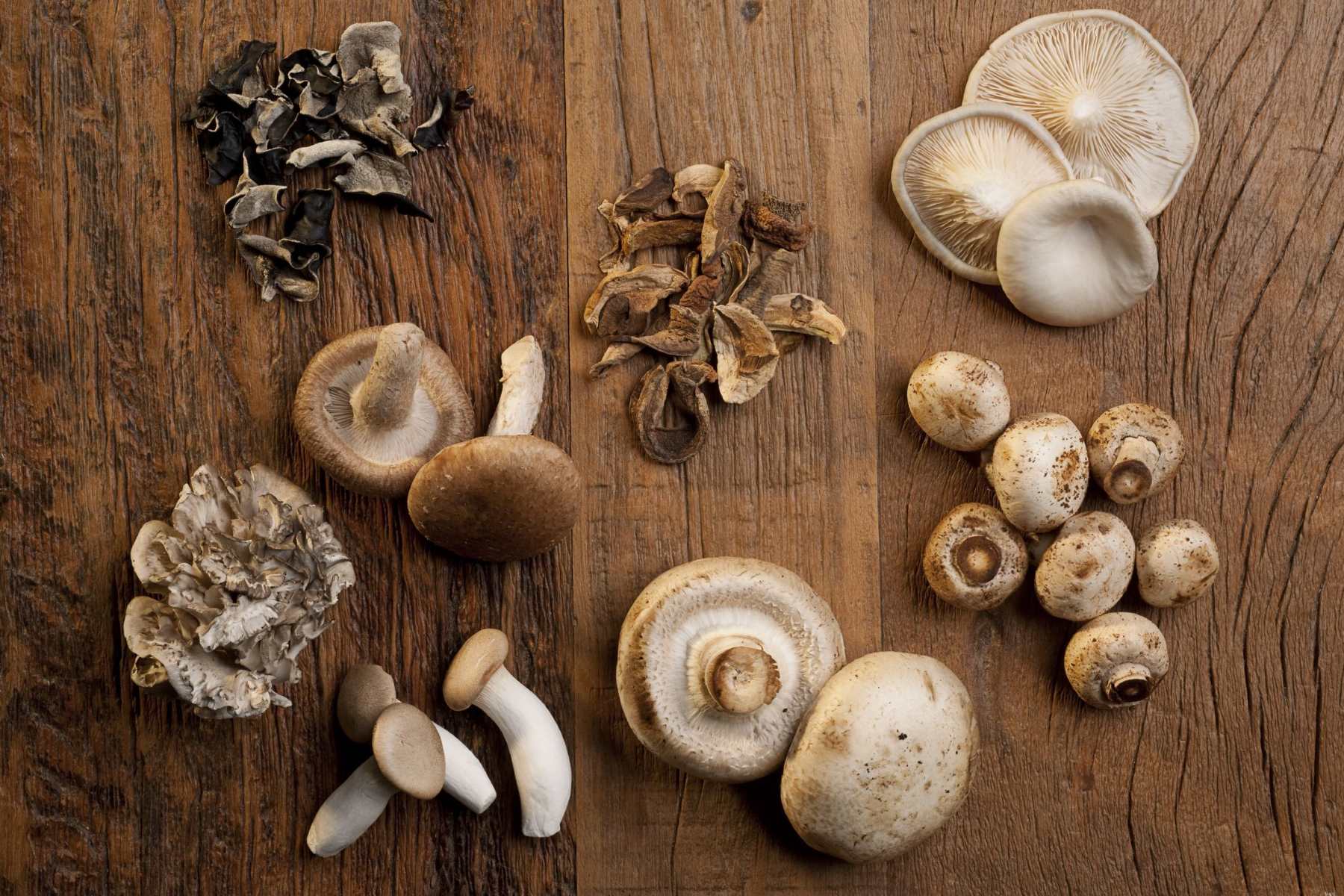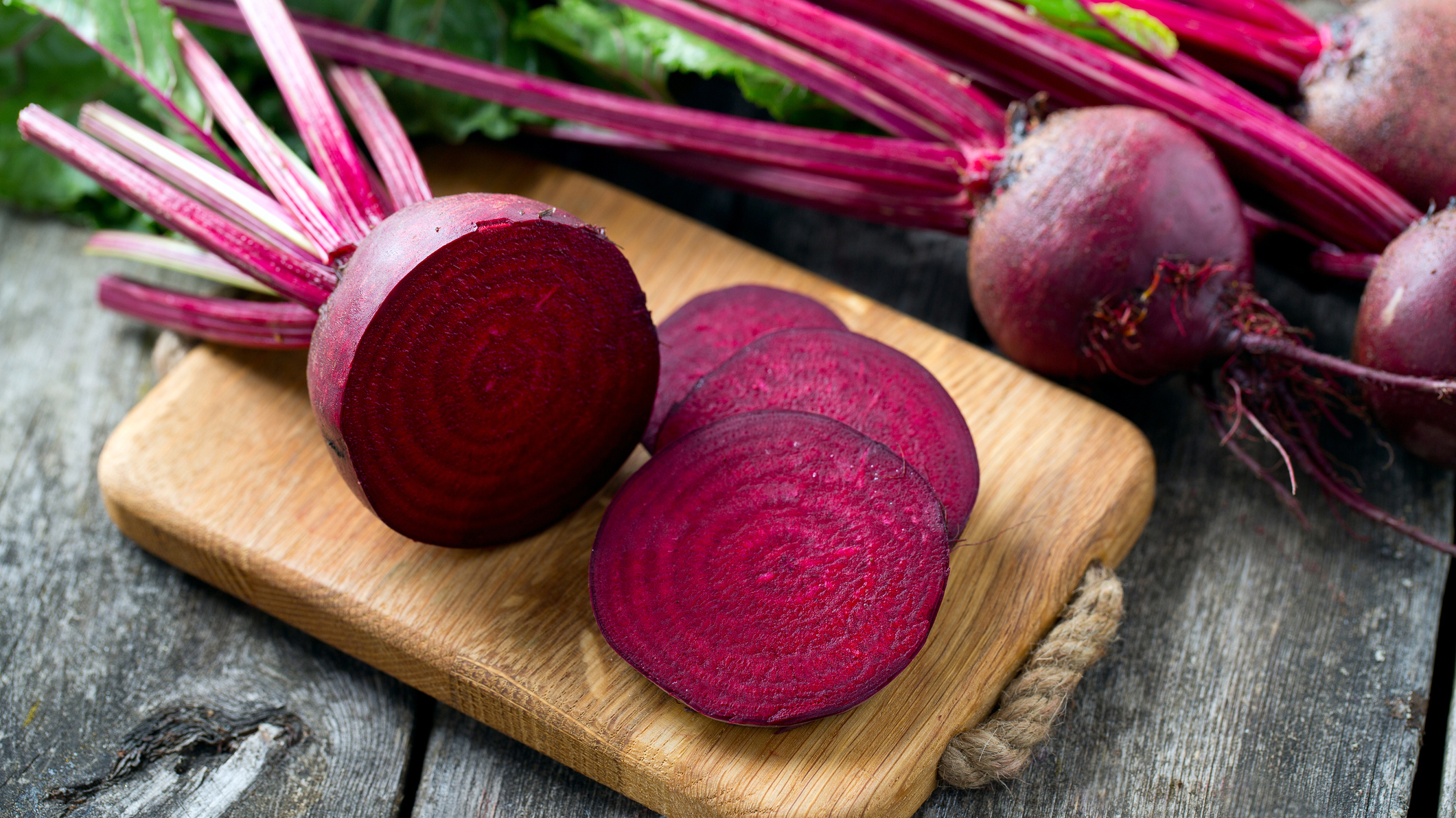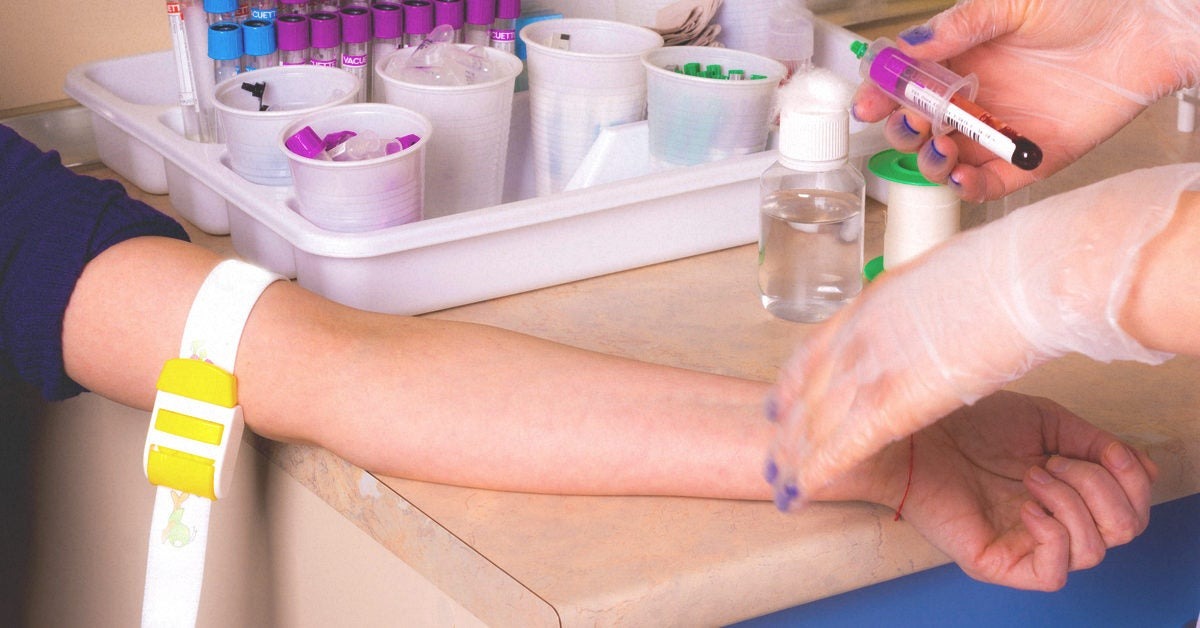

Featured
How To Improve Liver Health
Published: September 6, 2023
Discover the best tips and tricks to improve liver health in this featured guide. Enhance your well-being with expert insights and effective strategies.
Introduction
Welcome to this comprehensive guide on how to improve liver health. The liver is an incredibly vital organ that plays a crucial role in detoxification, metabolism, and digestion. It filters toxins from the bloodstream, stores essential vitamins and minerals, and produces bile to aid in the digestion of fats.
Unfortunately, many factors, such as poor dietary choices, sedentary lifestyle, excessive alcohol consumption, and exposure to toxins, can lead to liver damage. When the liver is compromised, it can result in a range of health issues, including fatty liver disease, hepatitis, and even liver failure.
But the good news is that with proper care and lifestyle changes, you can improve the health of your liver and support its vital functions. In this article, we will explore the various ways to enhance liver health and highlight the importance of maintaining a healthy liver.
By making small but impactful changes to your diet, exercise routine, and daily habits, you can optimize liver function and prevent potential liver-related complications. Let’s dive in and discover the strategies to promote a healthy liver and improve overall well-being.
Understanding the Liver
Before delving into ways to improve liver health, it’s essential to have a basic understanding of the liver and its functions. The liver is the largest internal organ in the human body, located on the right side of the abdomen. It performs a wide range of vital functions that are crucial for overall health and well-being.
The liver has several important functions:
- Detoxification: One of the primary responsibilities of the liver is to filter toxins and harmful substances from the bloodstream. It removes toxins from the body and converts them into less toxic substances that can be eliminated through urine or bile.
- Metabolism: The liver plays a crucial role in metabolism. It metabolizes nutrients, such as carbohydrates, proteins, and fats, and converts them into energy. It also helps regulate blood sugar levels and metabolizes drugs and medications.
- Storage: The liver acts as a storage unit for essential vitamins, minerals, and glycogen. It stores vitamins A, D, E, K, and B12, as well as iron and copper. This storage capacity ensures a continuous supply of these nutrients when needed.
- Production of bile: Bile, produced by the liver, helps in the digestion and absorption of fats. It is stored in the gallbladder and released into the small intestine when needed.
Understanding the crucial functions of the liver highlights the importance of taking care of this vital organ. By maintaining the health of your liver, you can support its functions and enjoy overall well-being. Now that we have a basic understanding of the liver, let’s explore the causes and symptoms of liver damage in the next section.
Causes and Symptoms of Liver Damage
Liver damage can occur due to various reasons, and it’s important to be aware of the potential causes and symptoms. Identifying these can help in early detection and prompt intervention to prevent further complications.
Some common causes of liver damage include:
- Poor Diet: A diet high in processed foods, saturated fats, and sugar can contribute to liver damage over time. Excessive consumption of unhealthy fats and sugar can lead to obesity, which is a risk factor for non-alcoholic fatty liver disease (NAFLD).
- Alcohol Abuse: The liver metabolizes alcohol, but excessive or prolonged alcohol consumption can cause inflammation and scarring of the liver, leading to alcoholic liver disease (ALD).
- Hepatitis Infections: Viral infections like hepatitis B and C can cause inflammation and damage to the liver if left untreated. These infections can be transmitted through contaminated blood, sexual contact, or sharing needles.
- Medications and Toxins: Certain medications, such as acetaminophen (Tylenol), when taken in excessive doses, can harm the liver. Exposure to environmental toxins, such as certain chemicals and drugs, can also contribute to liver damage.
- Obesity and Metabolic Syndrome: Being overweight or obese and having other metabolic risk factors like high blood pressure, high cholesterol levels, and insulin resistance can increase the risk of developing NAFLD.
- Autoimmune Diseases: Autoimmune diseases, such as autoimmune hepatitis and primary biliary cirrhosis, can cause the immune system to mistakenly attack and damage liver cells.
- Genetic Disorders: Inherited conditions like hemochromatosis (excessive iron accumulation) and Wilson’s disease (excessive copper accumulation) can lead to liver damage.
The symptoms of liver damage can vary depending on the severity of the condition. Some common symptoms include:
- Jaundice (yellowing of the skin and eyes)
- Abdominal pain and swelling
- Dark urine
- Fatigue and weakness
- Nausea and vomiting
- Unexplained weight loss
- Loss of appetite
If you experience any of these symptoms or suspect liver damage, it is important to seek medical attention for proper diagnosis and treatment. In the next section, we will explore the importance of maintaining liver health and how it impacts your overall well-being.
Importance of Maintaining Liver Health
The liver is a remarkably resilient organ, but it is not invincible. Maintaining a healthy liver is essential for overall well-being and can have a profound impact on your quality of life. Let’s explore why it is crucial to prioritize liver health.
1. Detoxification: The liver is responsible for detoxifying harmful substances and toxins from the body. It filters out impurities, drugs, alcohol, and other toxins to ensure optimal health. A healthy liver can efficiently perform this function, whereas a compromised liver may struggle to eliminate toxins, leading to their accumulation and potential harm to other organs.
2. Nutrient Storage and Metabolism: The liver plays a vital role in storing essential nutrients and maintaining their balance in the body. It stores vitamins, iron, and other minerals, ensuring a constant supply when needed. Additionally, the liver aids in the metabolism of carbohydrates, proteins, and fats, converting them into energy and other essential compounds.
3. Digestion and Nutrient Absorption: The liver produces bile, a substance that helps break down fats during digestion. It also regulates the release of bile into the small intestine, allowing for proper absorption of nutrients. Without a healthy liver, digestion and nutrient absorption may be compromised, leading to deficiencies and other digestive issues.
4. Immune System Support: The liver is intimately interconnected with the immune system. It helps remove bacteria, viruses, and other foreign substances from the bloodstream, playing a crucial role in immune response. A healthy liver helps maintain a strong immune system, preventing infections and supporting overall immune health.
5. Hormone Regulation: The liver plays a vital role in hormone regulation, including the metabolism of sex hormones such as estrogen and androgen. A healthy liver ensures the proper balance of hormones in the body, which can have significant effects on various aspects, including reproductive health and overall well-being.
6. Energy Production: The liver is involved in energy metabolism, helping convert stored and ingested nutrients into usable energy. A healthy liver ensures proper energy production, which is essential for physical activities, cognitive functions, and overall vitality.
By prioritizing liver health, you can support these crucial functions and promote overall well-being. In the following sections, we will explore various strategies to improve liver health, including dietary changes, exercise, toxin avoidance, and more.
Dietary Changes for a Healthy Liver
The food we consume plays a significant role in our liver health. Making dietary changes is one of the most effective ways to support and improve the function of our liver. Here are some key dietary changes you can implement for a healthy liver:
1. Increase Intake of Fruits and Vegetables: Fruits and vegetables are rich in antioxidants, vitamins, and minerals, which help protect the liver from damage. Aim to include a variety of colorful fruits and vegetables in your diet, such as leafy greens, berries, citrus fruits, cruciferous vegetables, and colorful bell peppers.
2. Choose Whole Grains: Opt for whole grains like brown rice, quinoa, whole wheat bread, and oats instead of refined grains. Whole grains are a good source of fiber, which aids digestion and helps maintain stable blood sugar levels.
3. Incorporate Lean Protein: Include lean sources of protein in your diet, such as poultry, fish, beans, and legumes. Protein is important for tissue repair and regeneration, and choosing lean options ensures minimal strain on the liver.
4. Limit Saturated and Trans Fats: Reduce your intake of saturated and trans fats, found in fatty meats, full-fat dairy products, and processed foods. These fats can contribute to liver inflammation and the development of fatty liver disease.
5. Include Healthy Fats: Incorporate healthy fats, such as avocados, nuts, seeds, and olive oil, into your diet. These fats are rich in omega-3 fatty acids and can help reduce inflammation and promote liver health.
6. Drink Plenty of Water: Staying hydrated is crucial for liver health. Water helps in flushing out toxins from the body and aids in optimal liver function. Aim to drink at least eight glasses of water per day.
7. Limit Sugar and Alcohol: Excessive consumption of sugar and alcohol can lead to liver damage. Limit your intake of sugary beverages, processed snacks, and alcohol to allow your liver to function optimally.
8. Consider Coffee: Studies suggest that moderate consumption of coffee may have protective effects on the liver. It has been linked to a lower risk of liver diseases, including liver cancer and cirrhosis.
Remember, making these dietary changes is not a quick fix but a long-term commitment to your liver health. It’s important to maintain a balanced diet and make sustainable choices that support overall well-being. In the next section, we will explore the role of exercise in promoting liver health.
Incorporating Exercise into Your Routine
Exercise is not only essential for cardiovascular health and weight management but also plays a vital role in maintaining a healthy liver. Engaging in regular physical activity can have numerous benefits for liver health. Here’s how you can incorporate exercise into your routine to support your liver:
1. Aerobic Exercises: Include aerobic exercises like brisk walking, jogging, swimming, or cycling in your routine. These activities increase heart rate and oxygen intake, improving blood flow to the liver and promoting its overall health.
2. Strength Training: Incorporate strength training exercises that target major muscle groups. Building muscle mass through strength training can improve insulin sensitivity, reduce fatty deposits in the liver, and enhance overall metabolic health.
3. High-Intensity Interval Training (HIIT): HIIT involves alternating between short bursts of intense exercise and periods of rest. This type of training has been shown to be effective in reducing liver fat and improving liver enzymes.
4. Yoga or Pilates: These low-impact exercises can help improve flexibility, reduce stress levels, and enhance overall well-being. The stress-reducing benefits can have a positive impact on liver health, as stress can contribute to liver damage.
5. Incorporate Physical Activity into Daily Life: Find ways to be more physically active in your daily life. Take the stairs instead of the elevator, walk or cycle instead of driving short distances, and engage in activities that you enjoy, such as gardening or dancing.
6. Consistency is Key: Aim for at least 150 minutes of moderate-intensity aerobic exercise or 75 minutes of vigorous aerobic activity each week, along with at least two days of strength training. Consistency is crucial for reaping the benefits of exercise on liver health.
Remember to start slowly and gradually increase the intensity and duration of your workouts to avoid injury. Listen to your body and choose activities that you enjoy to make exercise a sustainable part of your lifestyle.
Regular physical activity not only supports liver health but also contributes to overall well-being. In the next section, we will discuss the importance of reducing alcohol consumption for a healthy liver.
Reducing Alcohol Consumption
When it comes to liver health, one of the most important steps you can take is to reduce alcohol consumption. Excessive and prolonged alcohol intake can have detrimental effects on the liver, leading to a range of liver diseases. Here’s why it’s crucial to limit alcohol consumption for a healthy liver:
1. Alcohol and Liver Damage: The liver is responsible for metabolizing alcohol. Excessive alcohol consumption can cause inflammation and damage to liver cells, leading to a condition called alcoholic liver disease (ALD). ALD can progress from fatty liver to alcoholic hepatitis and eventually cirrhosis if alcohol consumption continues.
2. Fatty Liver Disease: Excessive alcohol intake can result in the accumulation of fat in the liver, leading to fatty liver disease. This condition can impair liver function and increase the risk of developing more severe liver damage.
3. Alcoholic Hepatitis: Alcoholic hepatitis is inflammation of the liver caused by prolonged alcohol abuse. It can cause symptoms such as jaundice, abdominal pain, and liver dysfunction. If left untreated, alcoholic hepatitis can progress to irreversible liver damage.
4. Alcoholic Cirrhosis: Long-term alcohol abuse can lead to the development of cirrhosis, a condition characterized by extensive scarring of the liver tissue. Cirrhosis impairs liver function and can result in life-threatening complications, such as liver failure and liver cancer.
5. Moderation is Key: If you choose to consume alcohol, it’s important to do so in moderation. The recommended limits for moderate drinking are no more than one drink per day for women and no more than two drinks per day for men. It’s important to note that these limits may vary depending on individual factors such as age, overall health, and medications.
6. Seek Support if Needed: If you find it challenging to reduce or quit drinking alcohol, reach out for support. Speak with a healthcare professional, join support groups, or seek counseling services. Remember, you don’t have to face it alone, and there are resources available to help you make positive changes.
Reducing alcohol consumption is a critical step in maintaining a healthy liver. By doing so, you can prevent and mitigate the risk of developing alcohol-related liver diseases. In the next section, we will discuss the importance of avoiding toxins and medications that can be harmful to the liver.
Avoiding Toxins and Medications Harmful to the Liver
The liver is responsible for metabolizing various substances, including drugs and toxins. Exposing the liver to harmful toxins and medications can put undue stress on this vital organ and lead to liver damage. It is important to be mindful of what we consume and avoid substances that can be harmful to the liver. Here are some key considerations:
1. Limit Exposure to Environmental Toxins: Chemicals and pollutants in our environment can have detrimental effects on the liver. To minimize exposure, avoid smoking, reduce contact with harmful chemicals, use natural cleaning products, and ensure proper ventilation in your living spaces.
2. Use Medications Responsibly: Certain medications, when used improperly or in excess, can cause liver damage. Follow the recommended dosage instructions, and consult your healthcare professional if you have concerns about medication-induced liver damage. Be cautious with over-the-counter drugs and herbal supplements as well, as they can also potentially harm the liver.
3. Be Aware of Herbal Supplements: While herbal supplements are often perceived as natural and safe, they can still have adverse effects, particularly on the liver. Some herbs and supplements may interact with medications or be harmful when taken in large doses. Consult with an herbalist or healthcare professional before incorporating herbal supplements into your routine.
4. Practice Safe Handling of Chemicals: If you work with or are exposed to toxic chemicals in your occupation or hobbies, take necessary precautions to protect yourself, including wearing appropriate protective gear and following safety protocols. Minimizing direct contact with harmful substances can reduce the risk of liver damage.
5. Practice Safe Alcohol Consumption: We’ve already discussed the importance of limiting alcohol consumption, but it’s worth reiterating. Excessive alcohol intake is a leading cause of liver damage, and reducing or avoiding alcohol altogether is crucial for liver health.
6. Educate Yourself: Stay informed about potential toxins and medications that can harm the liver. Understand the side effects and potential risks associated with medications you are taking. This knowledge will empower you to make informed decisions and take proactive steps to protect your liver.
Being aware of potential toxins and medications harmful to the liver is essential for maintaining liver health. By avoiding harmful substances and promoting a liver-friendly environment, you can help safeguard and support the optimal functioning of this vital organ. In the next section, we will explore the role of hydration in liver health.
The Role of Hydration in Liver Health
Proper hydration is essential for overall health, including the health of the liver. The liver performs numerous vital functions that require an adequate supply of water. Let’s explore the important role of hydration in liver health:
1. Detoxification: The liver is responsible for filtering toxins and waste products from the bloodstream. Sufficient hydration ensures that the liver has enough fluid to carry out this crucial detoxification process effectively. Water helps flush out toxins and allows the liver to function optimally.
2. Optimal Blood Circulation: Proper hydration promotes optimal blood circulation, including blood flow to the liver. Good blood circulation is vital for supplying oxygen and nutrients to liver cells, enabling them to carry out their functions efficiently.
3. Bile Production and Digestion: Adequate hydration is necessary for the production and secretion of bile, a substance produced by the liver that aids in the digestion and absorption of fats. Sufficient water intake ensures optimal bile production and supports efficient digestion.
4. Prevention of Dehydration: Dehydration can strain the liver and impair its function. When the body doesn’t have enough water, the liver has to work harder to perform its tasks. Chronic dehydration can increase the risk of liver damage and the development of liver-related diseases.
5. Optimal Nutrient Transport: Water is essential for transporting nutrients throughout the body, including to the liver. Proper hydration ensures that nutrients are efficiently delivered to liver cells, supporting their growth, repair, and overall health.
6. Weight Management: Staying hydrated can support healthy weight management, which is important for liver health. Adequate hydration helps promote a feeling of fullness, reducing the likelihood of overeating and weight gain. Maintaining a healthy weight can help prevent fatty liver disease and reduce the risk of liver damage.
To maintain proper hydration, it is recommended to drink an adequate amount of water throughout the day. The specific water intake may vary depending on individual factors such as age, physical activity level, and climate. As a general guideline, aim for at least eight glasses (about two liters) of water per day.
Additionally, you can increase your water intake by consuming water-rich foods such as fruits and vegetables. These foods not only provide hydration but also contain beneficial vitamins, minerals, and antioxidants that support liver health.
Remember, staying properly hydrated is crucial for overall health, and it plays a significant role in supporting the functions of the liver. In the next section, we will discuss natural supplements and herbs that can provide additional support for liver health.
Natural Supplements and Herbs for Liver Support
While a healthy diet and lifestyle are the foundations of liver health, certain natural supplements and herbs can provide additional support. These substances have been traditionally used for their potential hepatoprotective properties and can promote liver function and detoxification. Here are some commonly used natural supplements and herbs for liver support:
1. Milk Thistle: Milk thistle is a well-known herb that has been used for centuries to support liver health. It contains a compound called silymarin, which has antioxidant and anti-inflammatory properties. Silymarin is believed to promote liver cell regeneration and protect liver cells from damage caused by toxins and oxidative stress.
2. Turmeric: Curcumin, the active compound in turmeric, has powerful antioxidant and anti-inflammatory properties. It has been shown to potentially reduce liver inflammation, enhance liver detoxification pathways, and support overall liver health.
3. Dandelion Root: Dandelion root has been used in traditional medicine to support liver function. It may help improve bile flow, which aids in the digestion and elimination of toxins. Dandelion root also has diuretic properties, supporting the elimination of waste products through urine.
4. Artichoke: Artichoke extract has been studied for its potential hepatoprotective effects. It may help enhance liver function, reduce liver inflammation, and stimulate the production of bile, which aids in the digestion of fats.
5. Schisandra: Schisandra is an herb commonly used in traditional Chinese medicine for liver support. It has antioxidant and anti-inflammatory properties and may help protect liver cells from damage caused by toxins and oxidative stress.
6. Green Tea: Green tea is rich in catechins, which are antioxidants that have shown potential protective effects on the liver. Green tea consumption has been associated with a lower risk of liver diseases, including fatty liver disease and liver cancer.
While these natural supplements and herbs show promise for liver health, it’s important to note that further research is needed to fully understand their effectiveness and potential side effects. Always consult with a healthcare professional before starting any new supplement regimen, especially if you have an existing liver condition or are taking other medications.
Remember, natural supplements and herbs should complement a balanced diet and healthy lifestyle, rather than replace them. Prioritizing overall health through proper nutrition, regular exercise, and reducing exposure to toxins remains key to supporting optimal liver function.
In the next section, we will discuss the importance of managing stress in promoting liver health.
Managing Stress for a Healthy Liver
When it comes to liver health, managing stress is often overlooked but crucial. Chronic stress can have a significant impact on the liver and its overall function. The liver and the brain communicate closely through the gut-brain axis, and stress can disrupt this communication, leading to negative effects on liver health. Here are some key reasons why managing stress is important for a healthy liver:
1. Prevention of Inflammation: Stress triggers the release of stress hormones like cortisol, which can lead to inflammation throughout the body, including the liver. Chronic inflammation can contribute to liver damage and the development of liver-related diseases.
2. Promotion of Healthy Liver Function: Stress can affect liver function, impairing its detoxification processes and slowing down its ability to process and eliminate toxins. By managing stress, you can support optimal liver function and promote its ability to effectively filter out waste and toxins from the body.
3. Reduction of Risk of Fatty Liver Disease: Chronic stress and high cortisol levels have been associated with an increased risk of developing fatty liver disease. By implementing stress management techniques, you can help reduce the risk of this condition and promote a healthier liver.
4. Balanced Blood Sugar Levels: Stress can lead to imbalances in blood sugar levels, which can put strain on the liver. Long-term stress can contribute to insulin resistance and the development of conditions like non-alcoholic fatty liver disease (NAFLD). By managing stress, you can help maintain stable blood sugar levels and support liver health.
5. Improved Sleep Quality: Chronic stress can disrupt sleep patterns, affecting the body’s ability to repair and regenerate cells, including liver cells. Getting quality sleep is essential for overall well-being and supports liver health.
6. Incorporating Stress Management Techniques: There are various stress management techniques you can incorporate into your daily routine. These include deep breathing exercises, meditation, yoga, mindfulness, regular physical activity, spending time in nature, and engaging in activities that bring joy and relaxation.
Remember, managing stress is not just beneficial for liver health but also for overall well-being. Find stress management techniques that work for you and prioritize self-care. By reducing stress levels, you can support your liver’s health and function, as well as improve your overall quality of life.
In the next section, we will discuss the importance of regular liver screening and check-ups.
Regular Liver Screening and Check-ups
Regular liver screening and check-ups are essential for maintaining liver health and detecting any potential issues early on. By monitoring the health of your liver, you can take proactive steps to prevent or minimize the progression of liver diseases. Here are key reasons why regular liver screening and check-ups are important:
1. Early Detection of Liver Diseases: Liver diseases can often be asymptomatic in the early stages. Regular screening and check-ups, which may include blood tests, can help detect liver diseases such as hepatitis, fatty liver disease, or liver fibrosis before they progress to more severe stages.
2. Monitoring Liver Health: Routine liver screenings can provide insight into the overall health and function of your liver. Blood tests can assess liver enzymes, such as ALT and AST, which can indicate liver damage or inflammation. Imaging tests, such as ultrasound or MRI, can evaluate the liver’s structure and detect any abnormalities.
3. Identifying Risk Factors: Regular check-ups allow healthcare professionals to assess your overall health and identify potential risk factors for liver diseases. These risk factors may include excessive alcohol consumption, obesity, metabolic disorders, or a history of viral hepatitis. Identifying these factors enables early intervention and lifestyle adjustments to reduce the risk of liver damage.
4. Monitoring Medication Effects: Some medications can potentially cause liver damage as a side effect. Regular liver screenings can help monitor the effects of certain medications on liver function and allow for adjustments or alternatives to be explored if necessary.
5. Providing Guidance and Support: Regular check-ups provide an opportunity to discuss any concerns or questions about liver health with healthcare professionals. They can provide guidance on lifestyle changes, nutrition, and other interventions to support liver health, as well as address any worries you may have.
It’s important to consult with your healthcare provider or a liver specialist to determine the frequency and specific tests needed for your liver screenings and check-ups. Generally, individuals with risk factors or pre-existing liver conditions may require more frequent monitoring.
Remember, prevention and early detection are key to maintaining liver health. Regular liver screenings and check-ups provide a proactive approach in caring for your liver and overall well-being. By staying informed and proactive, you can take steps to support optimal liver function and reduce the risk of liver-related complications.
In the next section, we will conclude this comprehensive guide on improving liver health and summarize the key takeaways.
Conclusion
Taking care of your liver is crucial for overall health and well-being. The liver plays a vital role in detoxification, metabolism, digestion, and immune function. By implementing the following strategies, you can support and improve your liver health:
- Make dietary changes, such as increasing fruit and vegetable intake, choosing whole grains, incorporating lean protein, and limiting saturated fats and sugars.
- Incorporate exercise into your routine, including aerobic exercises, strength training, and high-intensity interval training.
- Reduce alcohol consumption to maintain a healthy liver and minimize the risk of liver-related diseases.
- Avoid toxins and medications that can be harmful to the liver, such as excessive exposure to environmental toxins and responsible medication use.
- Maintain proper hydration by drinking enough water throughout the day to support liver function, detoxification, and nutrient transport.
- Consider natural supplements and herbs, such as milk thistle, turmeric, dandelion root, artichoke, schisandra, and green tea, for additional liver support.
- Manage stress levels through techniques like deep breathing, meditation, yoga, and engaging in activities that bring relaxation.
- Undergo regular liver screenings and check-ups to monitor liver health, detect any potential issues early on, and receive guidance from healthcare professionals.
Remember that implementing these strategies should be part of a comprehensive and holistic approach to liver health. It’s important to maintain a balanced and healthy lifestyle overall. If you have pre-existing liver conditions or concerns, it is advisable to consult with a healthcare professional or a liver specialist for personalized guidance.
By prioritizing your liver health and making positive lifestyle changes, you can promote its optimal function, reduce the risk of liver-related diseases, and enhance your overall well-being. Start taking action today to support your liver, the amazing organ that serves as your body’s detox powerhouse.









